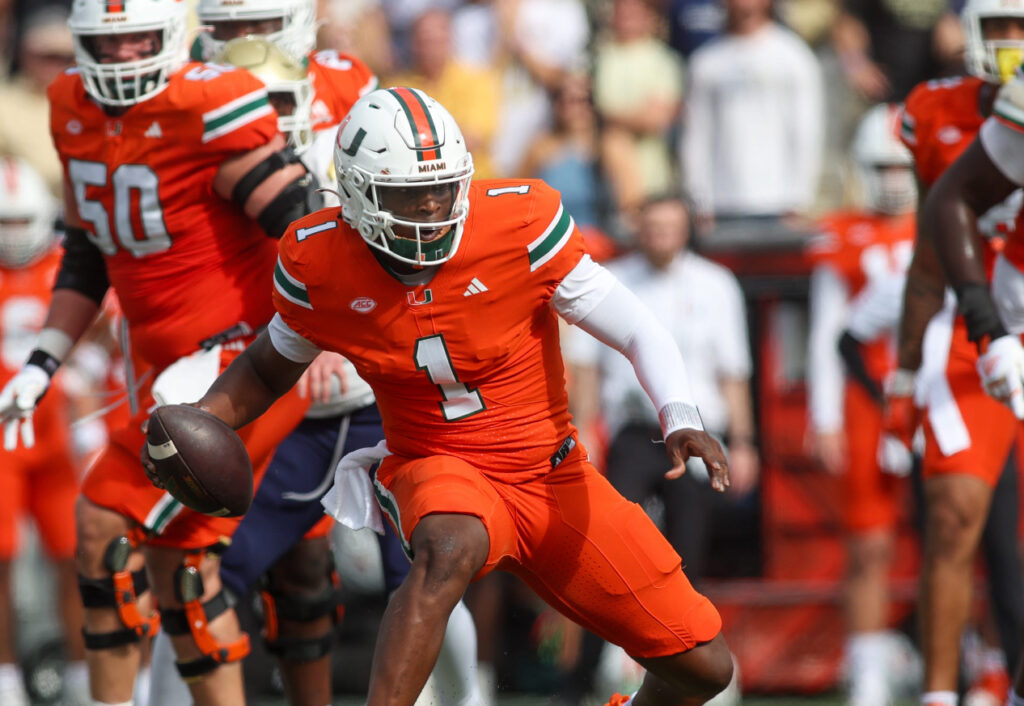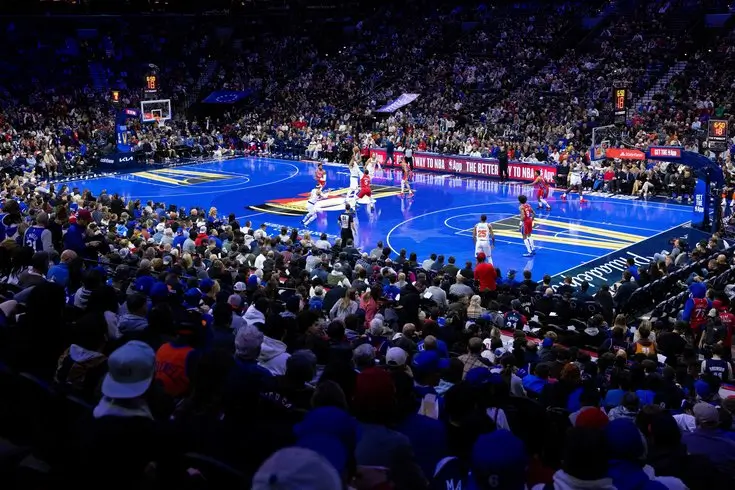There’s something almost liturgical about the NFL Draft. Under the glow of stage lights, on a carpet rolled out with spectacle and symbolism, young men step forward and are reshaped into myth. Cities pause. Teams gamble. And for one fleeting moment, hope becomes a quantifiable transaction.
On April 24, 2025, the Tennessee Titans stood on the clock with the first overall pick. And when Commissioner Roger Goodell called the name Cam Ward, the reaction across living rooms and locker rooms was not merely applause—it was a collective reckoning with a story few saw coming. Ward was not bred for this. He was not polished by elite prep academies or crowned by quarterback camps. He was, by all pre-draft metrics, not supposed to be here.
And yet—he was.
The Cam Ward Origin Story: Written in Dust, Not Ink
Cam Ward’s journey has always resisted clean narrativization. His high school, Columbia High in West Texas, ran the kind of antiquated Wing-T offense that reduces quarterbacks to human handoffs. No elite showcases. No four-star rankings. Just quiet reps on sunbaked fields and the unseen hunger of an athlete with no spotlight, only resolve.
When he finally found a college willing to believe in him, it was the University of the Incarnate Word, a small FCS program in San Antonio, far from the roaring bleachers of the SEC or Big Ten. There, he did what all overlooked players must do: manufacture spectacle from invisibility. He rewrote the school’s record books. Then he rewrote the FCS narrative.
His later stints at Washington State and finally Miami were not lateral moves—they were stages. Each transfer a step in his metamorphosis. Each new playbook a text to be studied, digested, transcended.
What we witnessed in his final collegiate year—leading the Hurricanes to national relevance, breaking touchdown records, outdueling blue-chip defenses—wasn’t a fluke. It was the logical outcome of an illogical climb.
The Titans’ Gamble as Cultural Rebirth
In choosing Ward, the Tennessee Titans didn’t just draft a player. They drafted a paradigm shift.
For years, Tennessee has occupied the margins of the NFL narrative—neither abysmal nor elite, defined more by quarterback purgatory than quarterback prophecy. But in the ashes of a 3–14 season, with a new general manager and a franchise yearning for coherence, the Titans made a decision not rooted in reputation, but in trajectory.
They chose a quarterback who doesn’t merely play the game, but reshapes it. Ward is not the prototype. He’s the disruption. His arm strength and improvisational genius offer one path forward. His poise and composure—seasoned by three collegiate systems and countless dismissals—offer another.
This is not the Titans drafting a savior. This is the Titans deciding to believe in emergence.
A Quarterback of the People, Not the Algorithm
Perhaps what makes Ward’s selection so poetic is how antithetical he is to the modern scouting-industrial complex.
Today, quarterbacks are quantified to the pixel: arm angles dissected by AI, hand sizes broadcast like biometric badges. But Cam Ward escaped all of that. For much of his life, he was below the algorithmic threshold, impossible to sort, too messy to model.
And yet, it’s precisely this mess—this unpredictability—that makes him transcendent.
He is not a curated brand or NIL sensation. He is a craftsman, whose fame lagged behind his ability by years. In a sports culture addicted to instant recognition, Ward’s slow burn feels like an act of resistance.
IV. What Cam Ward Represents for Black Quarterbacks
Cam Ward’s rise also joins a longer, more painful narrative: the doubting of Black quarterbacks.
From Doug Williams to Lamar Jackson, the league has repeatedly asked these athletes to prove not just their arm strength, but their capacity for “leadership,” “mental processing,” and “character”—dog-whistle critiques steeped in coded bias.
Ward, soft-spoken and tactically brilliant, does not play into that caricature. He subverts it. His intelligence is not performative. His charisma is not tailored for post-game microphones. He leads not through spectacle, but through clarity.
By going No. 1 overall, he joins a rare fraternity. But more importantly, he stands as a counterpoint to decades of scouting inertia and systemic neglect.
The Symbolism of the South: Nashville and New Beginnings
There’s something fitting—spiritually almost—about Ward landing in Nashville.
The city, like the quarterback, is caught in metamorphosis. Once known strictly for country music and cultural conservatism, Nashville is now a metropolis-in-progress, balancing southern roots with modern ambition.
Ward is the perfect quarterback for a city in flux. He embodies continuity and contradiction—a player whose game is electric, but whose persona is grounded.
As he dons the Titans blue, he doesn’t just inherit a team. He inherits a geography’s expectations, its wounds, its longing for someone to believe in.
The Era of the Self-Made QB
Ward’s selection may also mark a turning point in how we define elite quarterbacking.
For decades, greatness was assumed to emerge from certain soil—private QB coaches, elite 7-on-7 leagues, quarterbacking lineage. But Ward’s story re-centers raw development, incremental excellence, and the belief that a quarterback can be sculpted from clay, not just polished from birth.
In this sense, Ward isn’t just an athlete—he’s a rebuke to determinism. He’s a celebration of the long route. Of failing early and flourishing late.
That’s the kind of narrative franchises should want. That’s the kind of quarterback fans can root for.
What the League Might Learn
Ward’s selection challenges the NFL’s own hierarchies.
He was not invited to the Heisman ceremony. He was not featured in weekly highlight montages. He never felt like a lock, even when he had the résumé. And yet, when the decision mattered most, a franchise trusted his arc more than the algorithm.
Other teams may take note. Scouting departments may begin to look beyond the usual pipelines. Coaches may become more willing to adapt systems to quarterbacks, not the other way around.
Ward, then, is not just a player. He’s a proof of concept.
Legacy in Motion: Writing the Next Chapter
Of course, reflection is incomplete without risk.
Cam Ward has not thrown a single NFL pass. The league is ruthless. Quarterbacks can go from prodigy to scapegoat in the span of a September. And yet, even if Ward’s career unfolds imperfectly, his presence already reconfigures what’s possible.
The Titans didn’t just make a pick. They made a promise—to growth over gloss, to development over pedigree, to storytelling over sensationalism.
That is already legacy.
Each draft tells us more about the league than the players it selects. In Cam Ward, the 2025 NFL Draft told us this:
- That origin stories still matter
- That reinvention is real
- That belief is stronger than branding
And perhaps most importantly, it told us that football—like life—occasionally gets it right.
On April 24, 2025, the Titans didn’t just pick a quarterback.
They picked a movement.
No comments yet.








